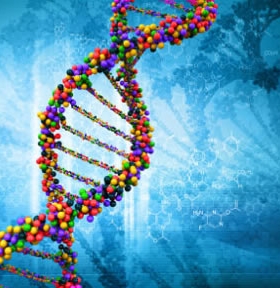Article at a Glance
Have you heard of epigenetics? It is a hot topic right now—and the word is appearing more and more in the news as scientists make further discoveries. Importantly, it is affecting the way people look at parenting. Turns out that our health choices impact our future children long before we even decide to have children.
The study of epigenetics looks at how genes can be turned on or off by our life experiences.
DNA is the blueprint or instructions for the entire body, but it is the overlying epigenome (a layer of chemical tags) that decides which genes are active. Even though each of our cells contains an identical DNA blueprint, it is the epigenome that decides which instructions each cell listens to. For example, brains cells and skin cells are different not because they contain different DNA, but because only some parts of their genetic instructions are active.
Although our DNA code does not change, the epigenome is flexible and reacts to our environment. Beyond helping cells know what to do, the epigenome also responds to things like diet, stress, toxins, behavior, and lifestyle. Our experiences help shape how genes are expressed. It is often referred to as an “on and off switch” that turns on or off certain genes. It is what makes even identical twins different over time.
In a new embryo the epigenome is largely erased and reprogrammed. But recently scientists have found that some epigenetic tags sneak through. This means that parents’ experiences and lifestyle can affect the genes that are passed down to offspring through their epigenetic tags.
Traditionally scientists thought that changes in the human genome only occurred gradually over many, many generations. But epigenetics shows how these changes can occur and ultimately be passed down in just one or two generations.
Unless you are a biology nut, you might wonder what this means to you. But it is actually quite important. It means decisions like overeating, smoking, and living a stressful lifestyle are not just doing self-harm, but may make your future children and grandchildren predisposed to disease and premature death. For example, overeating can cause the genes that affect obesity to be expressed or “switched on.”
Here are some other reasons that epigenetics should be important to you:
It is nice to know that we are not totally at the mercy of our genes. Our lifestyle choices can actually change our genes and the genes we pass down to our children. It turns out that Darwin was only seeing part of the picture.
